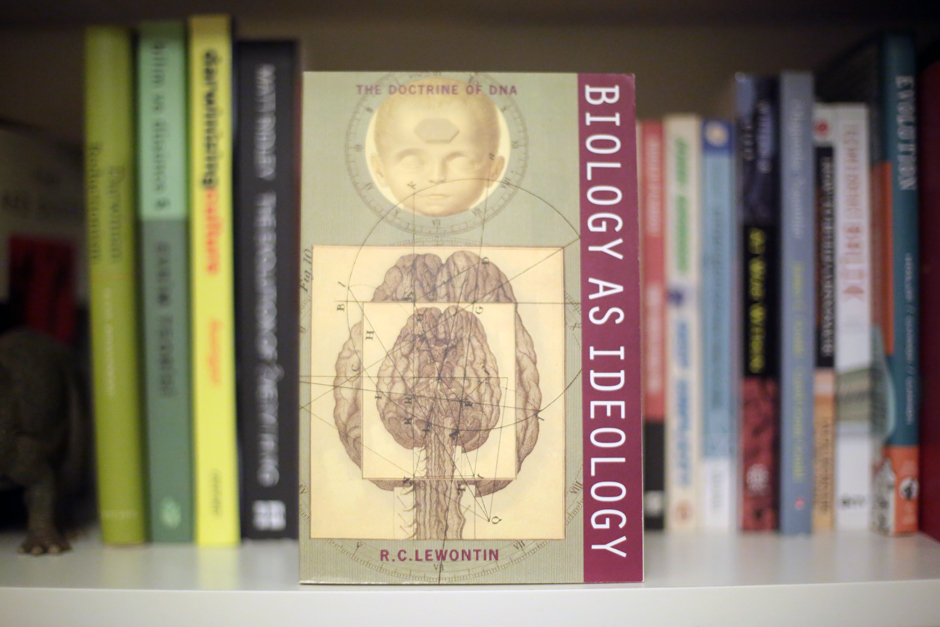Biology as Ideology
Review of Biology as Ideology: The Doctrine of DNA by Richard C. Lewontin

Lewontin is a leftist and he couldn’t be more obvious about it. When he unconvincingly accuses all science of being ideological, it seems like he’s preparing the ground for and justifying the strong ideology behind his own writing. He refuses the extreme idea that genes are the source of all causation in the human sphere, only to replace them with bourgeoisie and capitalism! Yes, he takes particular delight in linking everything from reductionism as a scientific tool to the information-theoretical paradigm in biology back to “the bourgeois revolutions of the eighteenth century”. It’s funny how reductionistic leftists can become when trying to refute reductionism. [“If Adorno doesn’t like something, no matter how inane or innocuous, it isn’t long before he begins to detect in it the seeds of fascism.” — Denis Dutton]
It’s one thing to dream of a more egalitarian, more democratic and more fair society; it’s another to filter facts according to that dream. I find this confusion especially troubling for a scientist: everything he writes suggests that if ever science shows beyond dispute that intelligence – or some other “good” human quality – is differentially inherited, he will reject that conclusion just because it’s not in line with his precious ideals of equality and fairness. (He actually has a go at it in the book, and maybe this isn’t much of a problem for him since he admits that scientists are inevitably ideological creatures.)
Speaking of fairness, I actually loved the book (1) because it is nicely designed and (2) because Lewontin certainly has a rare gift of balancing our thinking against the sometimes lazy Dawkins-Dennett line of thought by pointing out neglected perspectives and offering a lot of food for thought. The problem is that – just like his ally Gould – often he’s pushing it too far, to the point that the poor arguments injected at those specific points compromise his otherwise amazing authorship.
Another problem worth noting is that in some of the corrections he proposes for the Dawkinsian reductionism – again, just like Gould – he is actually overlapping with what Dawkins says, only with a different vocabulary: the contructionism (“the environment of organisms is coded in their DNA” – p.112) that he defends against adaptationism is in the same vein as Dawkins’s concept of extended phenotype (1982), and the below passage with which he closes the book (1991) is one step shy of memetics (1976).
(…) the genes, in making possible the development of human consciousness, have surrendered their power both to determine the individual and its environment. They have been replaced by an entirely new level of causation, that of social interaction with its own laws and its own nature that can be understood and explored only through that unique form of experience, social action.
In this respect, he reminds me of Dennett’s metaphor for Gould in Darwin’s Dangerous Idea: the boy who cried wolf.


Trackbacks.- Üçlü Sarmal: Gen, Organizma ve Çevre | Deniz Cem Önduygu